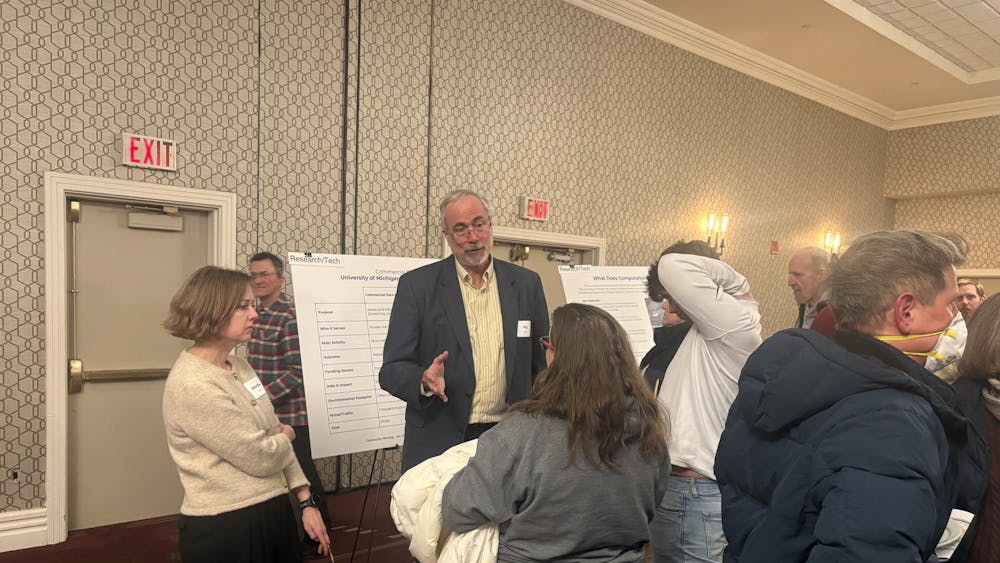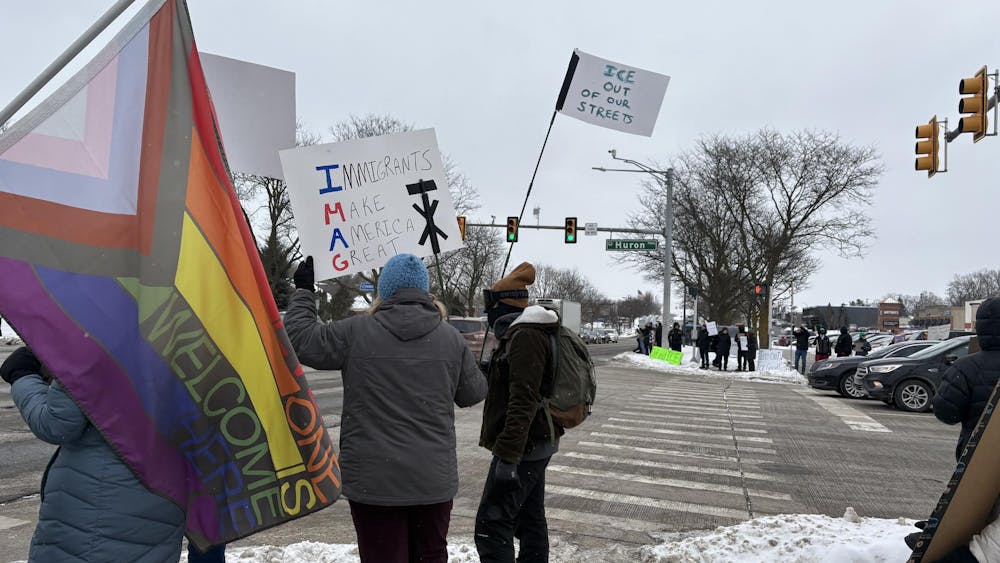The Affordable Care Act and LGBT Consumers event held on Feb. 12 at the Eastern Michigan University Student Center covered many limitations of obtaining health care and benefits.
The event focused on problems for same sex couples and transgendered individuals, who are twice as likely to be uninsured.
“I know both from the work that I do and personal experience that it is really hard to be a member of the LGBT community in this country right now,” said Kellan Baker, health policy analyst for the Center of American Progress.
Changes to the Affordable Care Act intended to assist lower-income individuals will take effect in 2014.
Both Baker and Andrew Cray, a LGBT research associate for the Center for American Progress, discussed the core issues that weren’t acknowledged, such as the U.S. Census not recognizing LGBT individuals.
One issue with health care is professionals who are uninformed about situations, resulting in low-quality care and the overall lack of care, which creates a “problematic circle.”
Transgender individuals endure the worst conditions for health care insurance to assist with financing hormone treatment, surgery and other needed medical resources. The negative experience of enduring job discrimination often jeopardizes employment and financial stability.
“For transgendered people, we know that sometimes medical services are part of becoming their true selves,” Cray said. “So what do we mean when we’re thinking medically about what equal access for Trans people means? It means that insurance companies offer equal coverage for services that are routinely offered for non-transgendered people.
“These services that I talk about: hormones. We know that these are covered for endocrine disease; they’re covered for women going through menopause. But for transgendered people many insurance plans discriminate against them through broad-coverage exclusions that aren’t based in medical science.”
As of June 2011, the LGBT Data Progression Plan was created to collect sexual orientation and gender identity information to be implemented into the health care system. The Affordable Care Act incorporated the information and works to provide 10 services to exclusively foster to LGBT people:
Data collection
Patient’s Bill of Rights
Public coverage expansion through Medicaid
Private coverage expansion through the exchanges
Preventative care, especially for women
Information resources at HealthCare.gov
Health Care Workforce
HIV/AIDS care
Non-discrimination protection
Commentary based prevention
Every state will be required to have a Health Insurance Marketplace in 2014, which will be sold to 50 million Americans. It will allow small businesses and individuals with incomes from $15,000 to $45,000 to purchase insurance.
For public coverage, the Supreme Court ruled states can decide whether to expand Medicaid programs that can be eligible to adults under age 65 with an individual income of $15,000 or $31,000 for a family of four. Michigan Gov. Rick Snyder has agreed for Michigan to expand.
Baker urges people to be vigilant to the rules being altered that will affect everyone at some point because their voice matters. His experience with CAP has made him appreciate the consideration and work to provide equal care to all Americans, particularly people in his community.
“It feels good to be pulling together, because I think the experience of many of our communities in this country is that people try to divide us because it’s easier to keep things the way they are,” Baker said. “It’s easier to keep the status quo and the health reform effort really offers an opportunity to work together on the same issues, on solutions that are going to work for all of our communities.”
To learn more go to AmericanProgressionAction.org or ConsumersForHealthCare.org.









